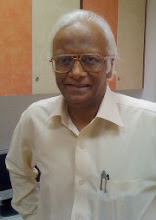THE
UNSINKABLE TITANIC
SUNNY THOMAS
The Tower
of Babel, the Titanic and Space Shuttle Columbia carry a fatalist flaw. And a
hollow ring of absolute certainty that crashed on the land, in the high sea, and
in the air. Everything that could be said has been said, and nothing new could
be added, except fiction, on these tragic milestones of human
civilization.
What an
irony of fate for a man who foresaw and warned of the danger of a colossal
tragedy himself became its victim! W T Stead was the much-respected editor of The Times (London) who wrote in his
column that a tragedy of enormous magnitude could befall the Titanic, the
proclaimed unsinkable ship, should it sink because of shortage of lifebelts and
life boats. On its maiden voyage, the liner was packed with celebrities, one of
whom was Stead himself!
In 1912,
the Titanic created quite a sensation across the world: The World’s Luxury
Queen, the Fastest Ship Ever, Titanic the Unsinkable Liner! What attracted the
global imagination was Titanic the Unsinkable!! The builders and designers of
the ship (Harland and Wolff ship yard at Belfast) were less to blame than the
myth-builders and myth fabricators, the White Star Line that owned her.
Fabulously built for a capacity of 2222 (plus one), alas, the ship’s 1514
passengers perished on a tryst with the ocean.
The
shortest lived ship, Titanic clocked four days of sailing on April 14, 1912
when an iceberg hit the vessel, south of Newfoundland. It was 11: 40 pm
(GMT). The hull plates buckled inward on
the starboard side and opened five of her 16 water-tight compartments to the
sea. Just before 2:20 am, the ship broke up and sank, with over a thousand
people still on board. Those in the water died within minutes because of the
freezing temperature.
Realizing
in time the gravity of the situation, the shipping magnate and chairman of the
liner, J Bruce Ismay, rescued himself instead of rescuing those who have placed
their trust and money with him. The rest of his life, he lived as a recluse,
ostracized by the society. Many of the victims were émigrés from Europe,
seeking a better life in America, and most of those who survived lost
everything and had to begin life from scratch.
In a saga
of adventure, Captain Rostron of Carpathia sailed 58 miles in three hours and a
half through an iceberg-ridden route, halting and diverting to avert a
shipwreck, to rescue the 710 survivors from their lifeboats.
The most
colourful personality among the survivors was the much interviewed and
photographed Molly Brown. The 7-year-old
Eva Hart, perhaps the youngest survivor, recalls her mother’s comments: I don’t
like this ship because a vessel called unsinkable was flying in the face of
God. The Shipbuilder magazine (1911
edition) described the Titanic ``practically unsinkable’’ because of its
water-tight doors when closed would permit not a drop of water.
As a
background, it must be noted that Greenland is a kind of huge ice factory with
about 20 iceberg producing glaciers. Glaciers are formed from snow,
accumulating for thousands of years. The glacial ice thus formed moves slowly
as a kind of viscose ice river trekking to the ocean. And the break-away ice,
we call icebergs.
In the
final analysis, the speed (22 knots) at which Captain Edward John Smith raced
the ship through a known ice-field in the dark waters, egged on by Ismay, in
spite of three iceberg warnings, is reckoned as the primary cause of the
disaster. It was precisely the time when rivals were competing for high-speed
vessels, and the success of her sisters, Olympic and Britannic, gave her their
share of false confidence. And some even blame First Officer William Murdoch
for the tilt he ordered just minutes after they spotted the iceberg. A tilt in
the opposite direction would have saved the ship, they maintain.
On that
fateful night, the Achilles’ heel of Titanic was exposed: the ship was not
nimble enough to avoid an iceberg. In What
Really Sank the Titanic, the authors claim that it was not the steel that
was weak but the rivets, the all-important metal pins that hold the steel hull
plates together.
In 1985 when the remains of the Titanic were finally located
2.5 miles down on the ocean bottom, it opened a new world of Titanic
literature, Titanic movies, and Titanic museums.
The exit of
Columbia, with Kalpana Chawla and six other astronauts, was much more dramatic
in that tragedy snatched one of the greatest moments of history! Those who came
to celebrate remained to mourn. It is
widely known that when a spacecraft enters the earth’s atmosphere from outer
space, it generates enormous heat that could explode the aircraft. Yet that is
what happened to the spaceship that NASA launched, without adequate unmanned
experiments and safety tests. Cost cutting on safety always cut short human
lives that are treated as guinea pigs.
People’s
idea of the universe was once so primitive that they thought gods and goddesses
were up in the sky. They sent incessant rains for 40 days that the whole earth
was destroyed, except very few. When humans began to muster enough confidence,
which means the few became many, they decided to challenge the gods and punish
them forever so that people on earth are not at the mercy of gods and
goddesses.
So a
magnificent building programme was launched that would one day reach the
heavens. They built and built but their ideas did not match. Out comes mortar
when steel was needed, out came a pillar when bricks were needed. Something
went wrong with their planning because there were too many builders. The
building that was supposed to reach the sky halted in the mid-air. They called
it Babel and blamed the gods.
Three
stages of human civilization, yet the same fatal flaw!

No comments:
Post a Comment